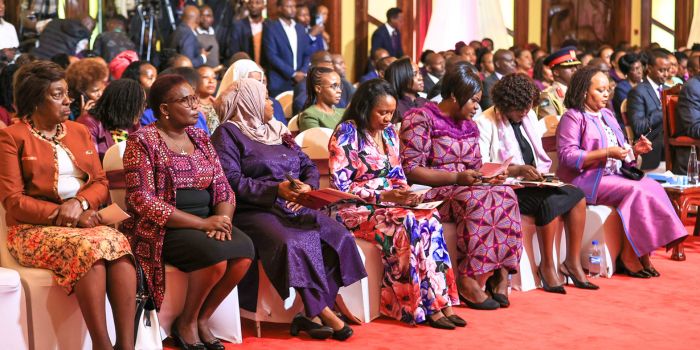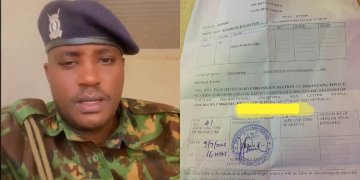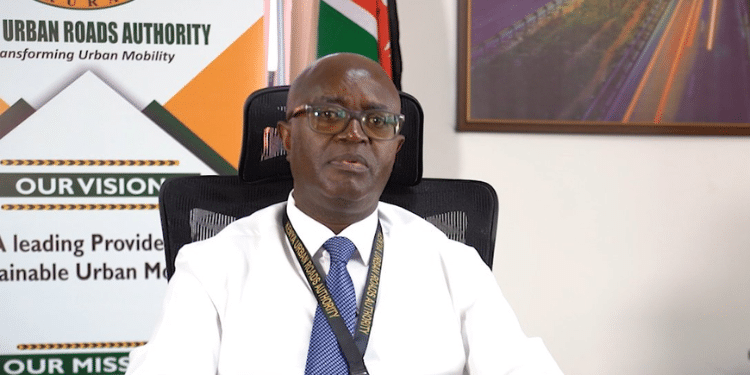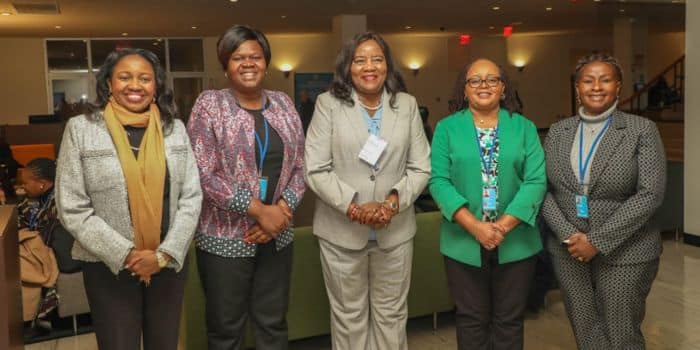The Council of Governors Chairperson Anne Waiguru led a team of female leaders from Kenya during the launch of the G7 strategy in New York.
The G7 governors alongside other female leaders went to New York to mobilize resources towards the actualization of their agenda.
According to a statement from the council, the meeting pushed for the development of a mentorship program to support women leaders at the grassroots level.
Additionally, the leaders advocated for the establishment of a strong communication and branding strategy, as well as the identification of potential and able women leaders to be trained to take up leadership positions.
“This will increase their chances of re-election and improve the opportunity to elect more women governors past the two thirds constitutional gender threshold,” the statement read in part.

Also Read: Ruto Charms Women with 10 New Appointments
Female Governors Mobilizing International Resources
At the same time, the team launched the New York chapter of the G7 strategies to mobilize support from international partners.
According to the statement, the New York launch took place in collaboration with the Oxfarm USA, a global organization that works to end poverty and injustice by fighting inequality.
“The aim of the New York chapter, launch which was done in collaboration with Oxfam USA, is to mobilize various partners towards supporting the strategies implementation.”
“The forum also recommended the strengthening of women’s organizations for them to support the actualization of the G7 strategy,” added the statement.
The launch that was held at Bahai International Community Center and was attended by Governors Susan Kihika-Nakuru, Wavinya Ndeti-Machakos, Cecily Mbarire-Embu and Gladys Wanga-Homabay and Idah Odinga, the wife of former Prime Minister Raila Odinga.
Also Read: Ichung’wah Explains Why Governor’s Seat Should be Reserved for Women
Ruto Speech During G7 Kenya Launch
Speaking during the launch of the Women Governors Caucus G7 Strategy on March 7, President William Ruto announced that the ruling United Democratic Alliance (UDA) party had come to an agreement to only allow a female deputy presidential candidate in case a man vies.
Also, he reaffirmed his support for female leadership in the country reiterating that his government would push for the implementation of the 2/3 gender rule.
“We must be intentional and deliberate about the place of women in leadership. We have agreed with Deputy President that moving forward when we are done, in the party.”
“If a presidential candidate is male, then a woman must be the deputy or vice versa. The same will apply to counties,” he said.
On the other hand, he appreciated female leaders for their resilient and for standing beside him through his difficult political times.
“When I ran into political turbulence as deputy president, more women on my side stood by me than men. In the last election, for some reason, more women voted for me than men.










































































